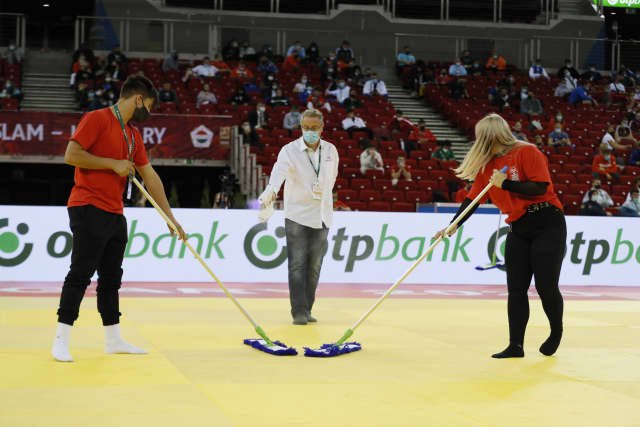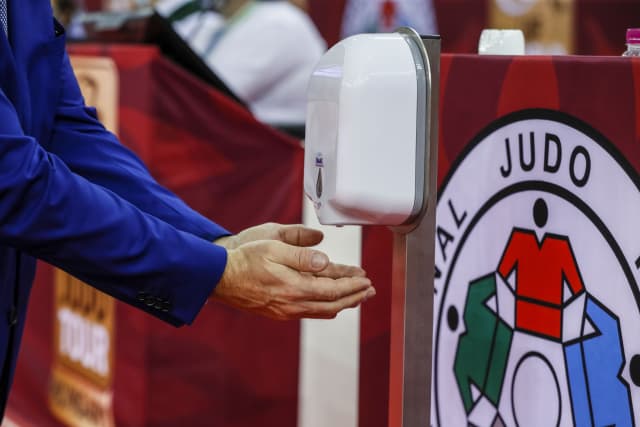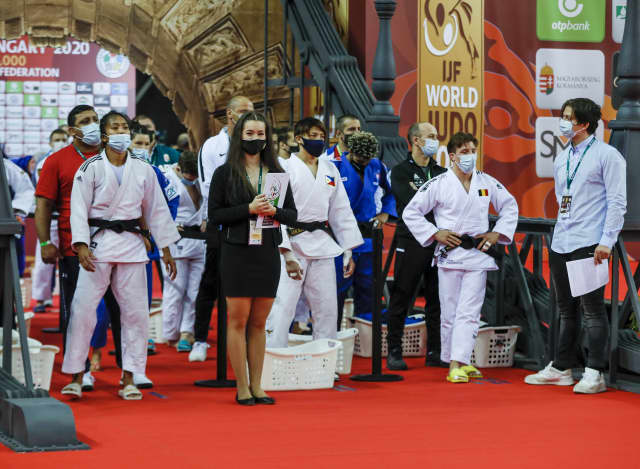It was necessary to innovate and adapt all procedures in terms of health security and it had to be done well to react appropriately and quickly in the event of infections or any other health anomaly.
The IJF got down to work. In the first place, it established a protocol in collaboration with the Hungarian authorities because an event of such magnitude cannot be launched without government support. A joint effort is necessary to have all the guarantees and alleviate the concerns of the participants.
To enter the country, it was necessary to present two negative Covid tests at the airport and undergo a third at the hotel. No-one left their room until the results were properly analysed. The athletes also had to perform a final test twenty-four hours before competing. To complete the process, bubbles were established, both in the hotel reserved for delegations and that of journalists, as well as in the sports arena, to avoid contact outside these bubbles.
In total, 18 cases were registered, all of them prior to the start of the tournament and all were treated urgently and effectively, with mandatory confinements and isolation that were respected strictly. On balance, everything was positive, but there is always room for improvement and it had to be done before January and the Doha Masters.
On the medical front, the analyses and controls were assured. Therefore, the idea was to streamline the bureaucratic process prior to the development of a tournament, by eliminating paper and saving time and energy needed in other fields.
The IJF created a database, a space reserved for national federations, called my.ijf@org, a new and extremely useful tool. Thanks to this link, the national federations choose who will be their covid manager, from within their delegations. That person will have all the administrative permissions to know the results of tests and to check the messages sent between the national federation and the IJF. Covid Managers have the contacts and information necessary to organise a trip, meeting all the requirements to participate in a tournament and they have full access to the data of their teams during the competition. It is a much more efficient system of relaying results and an indispensable source of information in real time, which respects the privacy of all federations and, last but not least, is also ecological.
IJF Competition Manager, Dr Lisa Allan, explains the good reception that the new system has had, “We are grateful to the national federation delegations for their understanding and patience as we change our working procedures. They are always so flexible and helpful and never complaining and I believe it is because they understand now to achieve their dreams and goals that together we must evolve and adapt to new ways of doing things. We cannot do what we always did. Judo discipline and values help us a lot with this.”
In Doha the IJF found that more and more federations were using this new tool and the reactions are very positive. We ask for feedback through an Excel document that is sent to all federations, so that they can note the work done and offer their own recommendations, with the aim of improving, because there is always a margin. At the moment the federations award 4.5 out of 5.
This new device is a kind of bible and, as the next tournament will take place in Tel Aviv, we want to get that half point that we have left to reach our cruising speed in the coming months, on our way to reaching the promised land of sport, the Olympic Games in Tokyo, with the perfect protocol.



